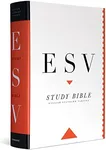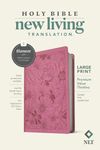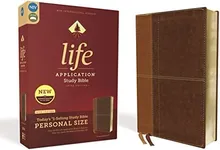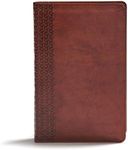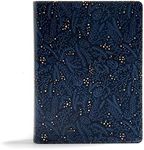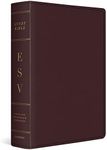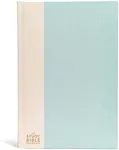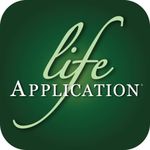Buying Guide for the Best Study Bibles
Choosing a study Bible is a personal journey that depends on your reading habits, spiritual goals, and how you plan to use the Bible. Study Bibles are designed to help you understand the text more deeply, offering notes, explanations, and resources alongside the scripture. When picking the right one, think about how you like to read, whether you want lots of extra information or just a little, and what kind of study tools will help you most. The best study Bible for you is the one that fits your learning style and supports your spiritual growth.TranslationThe translation refers to the version of the Bible text used, such as more literal word-for-word translations or more thought-for-thought, easier-to-read versions. This is important because it affects how easy the Bible is to understand and how closely it sticks to the original languages. Literal translations are great for in-depth study, while more readable translations are better for those new to the Bible or who want a smoother reading experience. Think about your comfort with older or more formal language versus modern, everyday language, and choose a translation that matches your reading preference and study needs.
Study Notes and CommentaryStudy notes and commentary are the extra explanations, background information, and insights found at the bottom or sides of the pages. These help clarify difficult passages and provide historical or cultural context. Some study Bibles have very detailed notes, while others keep it brief. If you want lots of background and explanation, look for a Bible with extensive notes. If you prefer to focus on the scripture itself, a Bible with minimal notes might be better. Consider how much extra information you want as you read and study.
Additional Study ToolsAdditional study tools can include maps, charts, timelines, concordances, and cross-references. These features help you connect different parts of the Bible, understand where events took place, and see how themes develop. If you enjoy digging deeper and making connections, look for a study Bible with plenty of these tools. If you prefer a simpler approach, you might not need as many extras. Think about how you like to learn and what resources will help you most.
Size and FormatSize and format refer to how big the Bible is, how easy it is to carry, and whether it’s hardcover, softcover, or even digital. Larger Bibles often have more notes and bigger print, but they can be heavy and less portable. Smaller Bibles are easier to carry but may have smaller print and fewer study features. Consider where and how you’ll use your Bible—at home, at church, or on the go—and pick a size and format that fits your lifestyle.
Audience FocusSome study Bibles are designed for specific groups, like teens, women, men, or new believers, and include notes and articles tailored to those audiences. This is important because it can make the study experience more relevant and engaging for you. If you want a Bible that speaks directly to your life stage or interests, look for one with a focus that matches your needs. If you prefer a more general approach, a standard study Bible will work well.
Binding and DurabilityBinding and durability refer to how the Bible is put together and how well it will hold up over time. Options include leather, imitation leather, hardcover, and paperback. If you plan to use your Bible often or take it with you, a more durable binding is a good choice. If it will mostly stay at home, you might not need the most rugged option. Think about how much wear and tear your Bible will get and choose a binding that matches.
